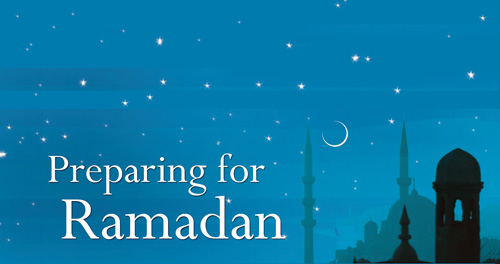Staying Healthy During Ramadan 2024
Non-urgent advice: We care about you staying healthy during Ramadan
The Islamic calendar is lunar and so Ramadan falls at a slightly earlier time in the year each year.
Ramadan 2024 is expected to start around the 10th of March.
KEY RAMADAN 2024 DATES
Sunday 10th March – the beginning of Ramadan 2024
Monday 11th March – the first day of sawm (fasting)
Saturday 06th April – Laylat al-Qadr (The Night of Power)
Tuesday 9th April– final day of sawm (fasting)
Wednsday 10th April – Eid-ul-Fitr
* All dates are subject to the sighting of the moon.
Ramadan in the UK
In the UK, Muslims will be fasting during Ramadan 2024 for approximately 14 hours each day. The exact times of suhoor and iftar will vary between cities due to geography and their positioning in relation to the sun.
Muslims taking part in Ramadan do not eat or drink anything during daylight hours, eating one meal (the ‘suhoor’ or ‘sehri’) just before dawn and another (the ‘iftar’) after sunset.
The end of Ramadan is marked by ‘Eid-ul-Fitr’, the Festival of the Breaking of the Fast. A special celebratory meal is eaten during the festival, the first daytime meal for a month.
While fasting is obligatory for all healthy Muslims (not children), there are exemptions for those who are ill or who’s health could be affected by fasting, for example, pregnant or breastfeeding women and people with diabetes.

How to observe Ramadan safely and still keep healthy
It is really important that if you have a medical condition, you see your GP before Ramadan starts to discuss treatment options that do not interfere with your fast. You can also talk to your Imam.
What should I do if I fell unwell or dehydrated?
If a person’s health is at risk due to the Fast i.e. dehydration, pregnant or injury they can break their fast as their health is more important, Allah has given permission in the Quran to break the fast. Islam does not require you to harm yourself in fulfilling the fast. If a fast is broken, it will need to be compensated by fasting at a later date when health is better.
What should I do if I have an appointment in Ramadan?
It is really important that you keep all medical appointments in Ramadan. If you really feel you are unable to keep your appointment during Ramadan, you need to call your GP or Hospital to re-schedule your appointment for as soon as possible after the Holy Month ends.
What should I do if I have diabetes?
If you take medication such as tablets or insulin to control your diabetes, please speak to your GP before Ramadan starts to find out if it is safe to fast. Not taking diabetic medication is dangerous and can cause short and long-term health complications. If fasting is not recommended by your GP or hospital team, the Islamic ruling is that you should not fast during Ramadan and should instead make a charitable donation (fidyah).
Advice for people with diabetes on how to stay healthy during Ramadan can be found on the Diabetes UK website. There are also factsheets available in several different languages.
What should I do if I am having tests for cancer?
It is really important that if you are undergoing tests or investigations for cancer that you keep your appointment during Ramadan. If you really feel you are unable to keep your screening appointment during Ramadan, you need to call the number on your invitation letter and re-schedule your appointment for as soon as possible after the Holy Month ends. Please remember that screening saves thousands of lives every year by diagnosing cancer early before there are any symptoms.
What should I do if I have cancer?
It is important that you realise that following strict medication guidance during the month of Ramadan is NOT against your religious beliefs, as it can be extremely dangerous to alter times of medication or to take drugs that require food on an empty stomach. It is highly recommended that all chemotherapy or radiotherapy appointments are kept during Ramadan.
What about other illnesses?
If you have other conditions, such as high blood pressure or asthma, you will probably have been prescribed medication to control your illness. It is important that these medications are taken regularly, every day, to prevent further, serious complications developing, such as heart attacks, strokes or asthma attacks. A consultation with your GP or community pharmacist before Ramadan starts should provide an opportunity for you to discuss potential options, such as using inhalers, taking tablets or receiving injections, that will allow you to control your illness while completing a fast safely.